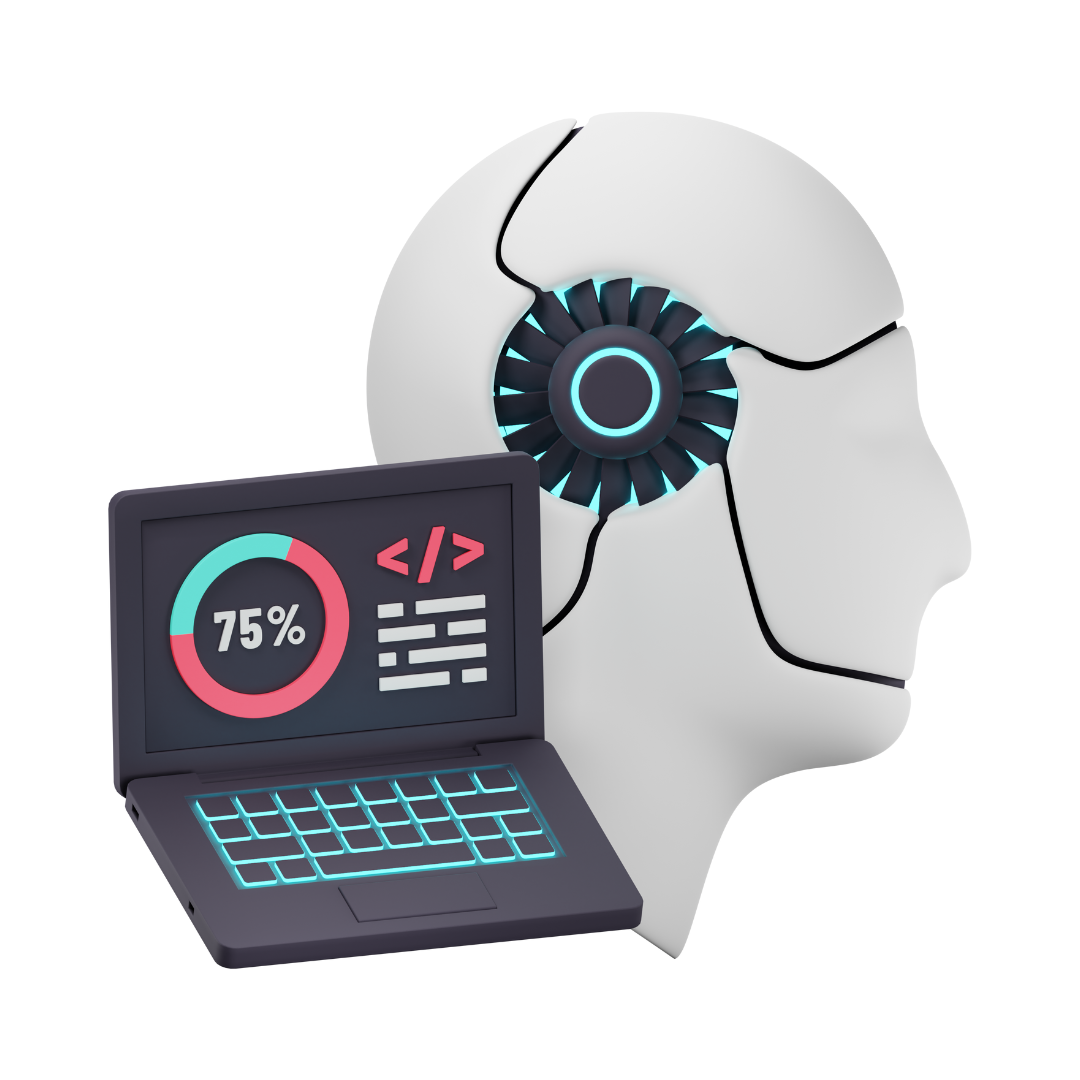Do My Predictive Analytics Assignment
Are you looking to excel in predictive analytics assignments? Look no further! Our Ivy League data analysts are here to assist you in mastering data analysis and prediction concepts & help you solve assignments, homework & projects related to predictive analytics.
Predictive analytics is a vital discipline in our modern, data-centric world. It empowers businesses with the ability to make well-informed decisions and derive valuable insights from vast datasets. Nonetheless, students often encounter challenges when attempting to grasp the intricate concepts behind predictive analytics and applying them effectively in their assignments.
Fortunately, our team accommodates expert statisticians and information analysts who excel in predictive modeling, device studying, and statistical evaluation. They boast substantial revel in in operating with numerous equipment and programming languages inclusive of Python, R, and SQL. These abilities permit them to proficiently analyze information and construct predictive models that yield actionable outcomes.
With our Predictive Analytics Assignment Help service, students can gain confidence in handling complex data analysis tasks, refine their predictive modeling skills, and excel in their academic journey. Let our experts guide you to success in predictive analytics assignments!
What is Predictive Analytics?
Predictive analytics is a noticeably effective data evaluation method that allows us to count on destiny effects and traits through the usage of historical facts, statistical algorithms, and machine learning techniques. This method is a critical factor of harnessing the power of facts to make informed decisions and put together for upcoming events.
By employing various statistical models and data mining techniques, predictive analytics uncovers hidden patterns and relationships within vast datasets. These models are then applied to new data to make predictions and identify potential trends in diverse fields like sales forecasting, customer segmentation, risk assessment, and fraud detection.
Effective predictive analytics involves a series of critical steps, each contributing to its success. These steps encompass data collection, meticulous data cleaning, the selection of pertinent features, the development and evaluation of predictive models, and the practical implementation of these models.
Predictive analytics, at its core, offers a remarkable capability: the ability to furnish invaluable insights into customer behavior, streamline operational processes, mitigate risks, and elevate decision-making across a wide spectrum of industries. In our data-abundant world, where data rules, predictive analytics stands as an indispensable tool for organizations keen on making precise predictions and fine-tuning their strategies based on evidence drawn from data.
Why Predictive Analytics Assignment is Challenging?
Predictive analytics assignments can pose unique challenges due to the complexity and multifaceted nature of the field. Here are some reasons why students may find predictive analytics assignments challenging:
- Mathematical and Statistical Proficiency: Predictive analytics heavily relies on mathematical and statistical concepts, such as regression analysis, machine learning algorithms, and probability theory. Students may face difficulties in understanding and applying these advanced mathematical techniques.
- Data Pre-processing: Before performing predictive analysis, data pre-processing is essential to clean, transform, and prepare the data for analysis. Dealing with large datasets and handling missing values, outliers, and noisy data can be time-consuming and challenging.
- Algorithm Selection: Choosing the appropriate predictive model or machine learning algorithm for a specific problem can be tricky. Different algorithms have distinct strengths and weaknesses, and students need to comprehend their nuances to make the right selection.
- Feature Engineering: Identifying relevant features or variables that contribute significantly to the predictive model's performance is crucial. Feature engineering requires domain knowledge and creativity to extract meaningful information from the data.
- Overfitting and Underfitting: Balancing the model's complexity to avoid overfitting (model memorization) or underfitting (oversimplification) is a common challenge. Achieving the right balance is essential for accurate predictions.
- Software Proficiency: Students may need to use advanced data analytics tools and programming languages like Python or R. Acquiring proficiency in these tools can be time-consuming for beginners.
Types of Predictive Analytics
Predictive analytics encompasses various techniques and methods to forecast future events and make data-driven predictions. Here are some essential types of predictive analytics:
- Regression Analysis: Regression analysis is a fundamental predictive analytics method that examines the relationship between a dependent variable and one or more independent variables. It helps in predicting continuous numeric outcomes and is widely used for forecasting sales, demand, and financial trends.
- Classification Models: Classification models are used when the outcome is categorical, and the goal is to classify data into specific groups or categories. Frequently employed algorithms in predictive analytics encompass Decision Trees, Random Forests, and Support Vector Machines (SVM). These algorithms find extensive application in tasks like spam detection, sentiment analysis, and customer segmentation.
- Machine Learning Algorithms: Machine learning algorithms, including Neural Networks, K-Nearest Neighbors, and Naive Bayes, offer robust capabilities for predictive analytics. They excel at recognizing intricate data patterns and relationships, rendering them suitable for applications such as recommendation systems, fraud detection, and medical diagnosis.
- Clustering Techniques: Clustering methods group similar data points together based on their similarities and dissimilarities. This type of predictive analytics is utilized in customer segmentation, anomaly detection, and pattern recognition.
- Text Analytics: Text analytics focuses on extracting insights from unstructured textual data. Sentiment analysis, text classification, and topic modeling are examples of text analytics used in social media sentiment analysis, customer reviews, and market trend analysis.
- Forecasting Models: Forecasting models, like exponential smoothing and ARIMA (AutoRegressive Integrated Moving Average), are specialized techniques for time series forecasting. They are widely applied in sales forecasting, demand planning, and supply chain optimization.
Applications of our Predictive Analytics
Predictive analytics has widespread applications across various industries and domains, revolutionizing decision-making processes and improving business outcomes. Here are some key applications of our predictive analytics services:
- Financial Services: Predictive analytics plays a crucial role in the financial sector, helping banks and financial institutions detect fraudulent activities, assess credit risk, and predict customer churn. It enables personalized financial product recommendations and assists in optimizing investment strategies.
- Healthcare: In healthcare, predictive analytics aids in disease prediction, patient risk stratification, and early detection of medical conditions. It enhances clinical decision-making, facilitates personalized treatment plans, and optimizes healthcare resource allocation.
- Marketing and Customer Relationship Management: Predictive analytics is extensively used in marketing to identify potential customers, forecast customer behavior, and target marketing campaigns effectively. It enables businesses to offer personalized product recommendations, enhance customer retention strategies, and improve customer satisfaction.
- Manufacturing and Quality Control: Predictive analytics is applied in manufacturing to predict equipment failures, prevent downtime, and improve maintenance planning. It ensures optimal production efficiency and enhances product quality through proactive quality control measures.
- E-commerce and Retail: Predictive analytics helps e-commerce and retail businesses personalize shopping experiences, optimize pricing strategies, and forecast demand for products. It improves customer satisfaction, boosts sales, and enhances inventory management.
- Energy and Utilities: In the energy sector, predictive analytics is used for predictive maintenance of infrastructure, load forecasting, and energy consumption optimization. It aids in minimizing downtime, optimizing energy usage, and improving resource planning.
Topics Covered by our Predictive Analytics Assignment Help Service
Our Predictive Analytics Assignment Help Service covers a wide range of topics to assist students in mastering the concepts and applications of this powerful analytical discipline.
Our service contains a wide range of key subjects, which include but are not restricted to:
- Data Preprocessing: Exploring facts preprocessing strategies, together with data cleaning, statistics transformation, and managing missing values, to ensure the records is appropriate for predictive modeling.
- Model Evaluation and Validation: Teaching students how to evaluate and validate predictive models using performance metrics, cross-validation, and techniques for avoiding overfitting.
- Feature Engineering: Learning how to extract relevant features from the data to enhance the predictive power of models and improve their accuracy.
- Ensemble Methods: Exploring ensemble methods like bagging, boosting, and stacking, which combine multiple models to improve prediction performance.
- Big Data Analytics: We provide guidance on applying predictive analytics to large-scale datasets, including insights into distributed computing frameworks like Apache Hadoop and Spark. We also address the specific challenges associated with big data analytics.
- Predictive Modeling in Industries: Our experts delve into real-world applications of predictive analytics across diverse industries, including finance, healthcare, marketing, and manufacturing. You'll gain valuable insights into how predictive modeling is used in practice.
- Ethical Considerations: We engage in discussions surrounding ethical issues tied to predictive analytics. This includes exploring topics like privacy concerns, the potential for bias in models, and the importance of transparency in decision-making processes.
Why choose our Predictive Analytics Assignment Help Service?
Choosing our Predictive Analytics Assignment Help Service offers numerous advantages for students seeking comprehensive assistance in this complex and dynamic field. Here are compelling reasons to opt for our service:
- Subject Matter Experts: Our team comprises skilled professionals with vast expertise in predictive analytics. They hold advanced degrees in data science, statistics, and related fields, ensuring top-notch guidance and support.
- Customized Solutions: We understand the uniqueness of each assignment. Our experts tailor solutions to meet specific requirements, ensuring that students receive personalized, high-quality work.
- Timely Delivery: Meeting deadlines is crucial in academics. With our service, students can rest assured that their assignments will be delivered promptly, allowing them ample time for review and submission.
- Plagiarism-Free Work: We prioritize originality and provide 100% plagiarism-free content. Our experts meticulously cite all sources and employ plagiarism-detection tools to ensure authenticity.
- Comprehensive Coverage: Whether it's data preprocessing, modeling, evaluation, or application in industries, our service covers a wide array of topics, helping students gain a holistic understanding of predictive analytics.
- 24/7 Support: Our dedicated customer support team is available round-the-clock to address queries, provide updates, and offer prompt assistance whenever needed.






 Certified Python Experts
Certified Python Experts
 4.7/5.0
4.7/5.0 4.3/5.0
4.3/5.0 4.5/5.0
4.5/5.0





